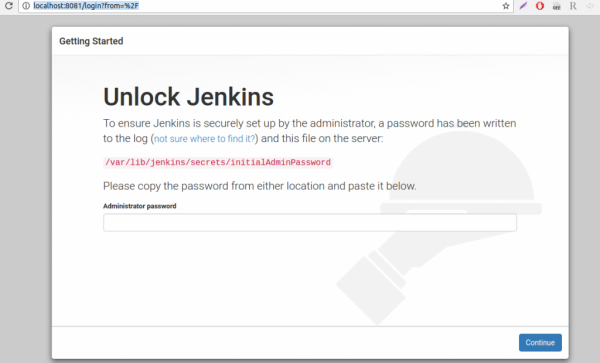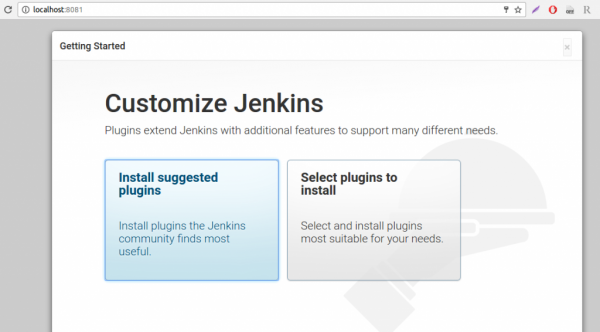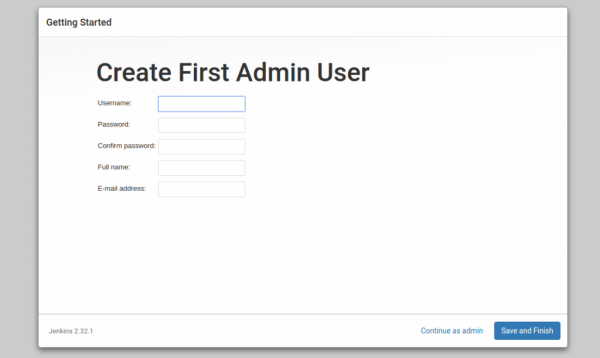
 Data Structure
Data Structure Networking
Networking RDBMS
RDBMS Operating System
Operating System Java
Java MS Excel
MS Excel iOS
iOS HTML
HTML CSS
CSS Android
Android Python
Python C Programming
C Programming C++
C++ C#
C# MongoDB
MongoDB MySQL
MySQL Javascript
Javascript PHP
PHPPhysics
Chemistry
Biology
Mathematics
English
Economics
Psychology
Social Studies
Fashion Studies
Legal Studies
- Selected Reading
- UPSC IAS Exams Notes
- Developer's Best Practices
- Questions and Answers
- Effective Resume Writing
- HR Interview Questions
- Computer Glossary
- Who is Who
How To Install Jenkins on Ubuntu
Jenkins is a powerful application that allows continuous integration and continuous delivery of projects, regardless of the platform you are working on. It is a free source that can handle any kind of build or continuous integration. You can integrate Jenkins with a number of testing and deployment technologies. This article explains about- “How to install Jenkins on Ubuntu”
To add Jenkins PPA on Ubuntu, use the following command –
$ wget -q -O - https://pkg.jenkins.io/debian/jenkins-ci.org.key | sudo apt-key add - $ sudo sh -c 'echo deb http://pkg.jenkins.io/debian-stable binary/ > /etc/apt/sources.list.d/jenkins.list'
Now update the packages, use the following command –
$ sudo apt-get update
To install Jenkins, use the following command –
$ sudo apt-get install jenkins
The sample output should be like this –
Reading package lists... Done Building dependency tree Reading state information... Done The following packages were automatically installed and are no longer required: libterm-readkey-perl linux-headers-4.4.0-31 linux-headers-4.4.0-31-generic linux-image-4.4.0-31-generic linux-image-extra-4.4.0-31-generic linux-signed-image-4.4.0-31-generic Use 'sudo apt autoremove' to remove them. The following additional packages will be installed: daemon The following NEW packages will be installed: daemon jenkins 0 upgraded, 2 newly installed, 0 to remove and 28 not upgraded. Need to get 69.9 MB of archives. After this operation, 70.5 MB of additional disk space will be used. Do you want to continue? [Y/n] y Get:1 http://in.archive.ubuntu.com/ubuntu xenial/universe amd64 daemon amd64 0.6.4-1 [98.2 kB] .............................................................................................
To set the port number for Jenkins, using the following command –
$ sudo nano etc/default/jenkins
The sample output should be like this –
# defaults for jenkins continuous integration server # pulled in from the init script; makes things easier. NAME=jenkins # location of java JAVA=/usr/bin/java # arguments to pass to java JAVA_ARGS="-Djava.awt.headless=true" # Allow graphs etc. to work even when an $ #JAVA_ARGS="-Xmx256m" #JAVA_ARGS="-Djava.net.preferIPv4Stack=true" # make jenkins listen on IPv4 addr$ PIDFILE=/var/run/$NAME/$NAME.pid # user and group to be invoked as (default to jenkins) JENKINS_USER=$NAME JENKINS_GROUP=$NAME ........................................................................
Now search for HTTP_PORT=8080 and replace by HTTP_PORT=8081 as shown below –
# port for HTTP connector (default 8080; disable with -1) HTTP_PORT=8081
Now save and exit the file.To restart Jenkins, use the following command –
$ sudo service jenkins restart
Copy the following URL and paste on your any favorite browser –
http://localhost:8081/
The sample output should be like this –

Use the following command to find the admin password as shown below –
$ sudo nano /var/lib/jenkins/secrets/initialAdminPassword
Copy the password and paste on your browser. Now click on continue button. The sample output would be like this –

Now click on Install Suggested Plugins which will promote the following screen as shown below –

After completion of installation process, the following screen comes up for creating the first admin user which is as shown below –

Complete the information which is required and click on the save and finish button. Now it will promote the following screen as shown below –

Now click on start using Jenkins which will promote the following screen as shown below –

In the above article, we have learnt – Learn how To Install Jenkins on Ubuntu. In our next articles, we will come up with more Linux based tricks and tips. Keep reading!

